00:57
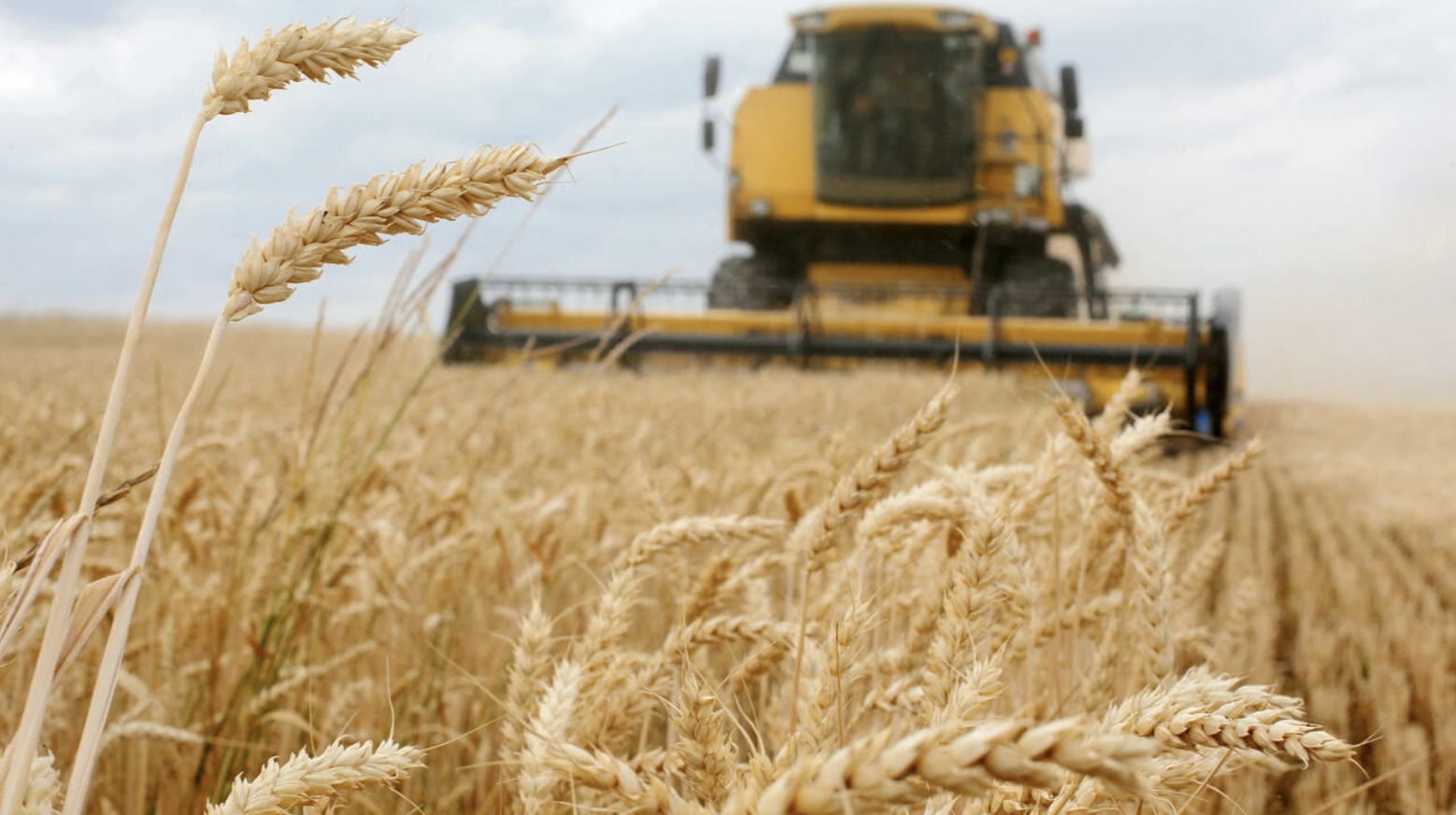
As the Russia-Ukraine conflict moves into its fourth week, agricultural experts are worried about surging global food prices due to many factors including supply chain disruptions in Ukraine and Western sanctions against Russia.
The two countries are among the top five wheat exporters in the world, accounting for 29 percent of global wheat export. Wheat is the second most-produced grain after corn worldwide and is crucial for making staple food like bread and pasta. The two agricultural powerhouses also account for roughly 80 percent of global exports of sunflower oil.
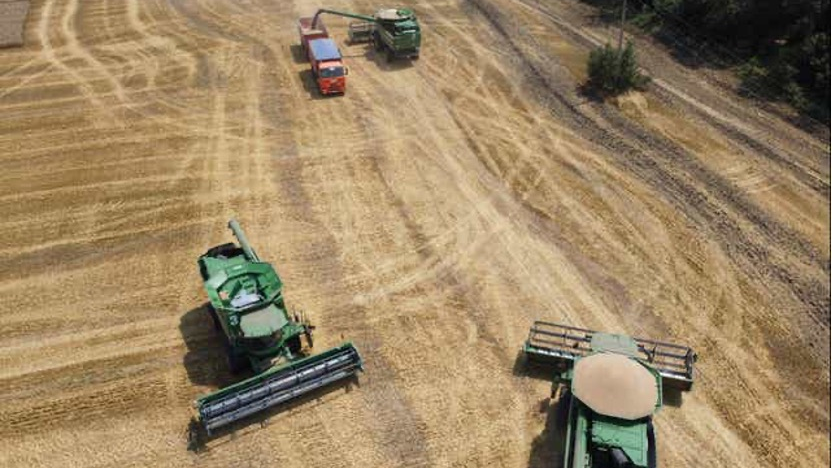
Farmers use combines to harvest a wheat field near the village Tbilisskaya, Russia, July 21, 2021. /AP
Farmers use combines to harvest a wheat field near the village Tbilisskaya, Russia, July 21, 2021. /AP
Ukraine has banned exports of agricultural commodities including wheat, corn and meat to prevent a humanitarian crisis, according to a cabinet resolution passed two weeks ago. Meanwhile, Russia sought to ban exports of goods like agricultural and forestry products until the end of this year to counter the detrimental effect of Western sanctions.
Global food prices have already been soaring since the outbreak of COVID-19 before it hit a ten-year record high last month due to high demand, transport costs, and port closures. The disrupted agricultural activities in Ukraine could further exacerbate global food insecurity.
Although still months away from harvesting season, UN's World Food Programme (WFP) has warned that international food prices could rise another 22 percent as a prolonged conflict would slash harvests of winter wheat, which is supposed to be ready by summer. It has become uncertain now if farmers in Ukraine can harvest the crops and deliver them to the market.
Ukrainian farmers are also at risk of missing the spring planting season for products like sunflower seeds, corn and barley. They have lost 10 percent of land usage due to ongoing military activities like bombing, and only 20 percent say they have enough fuel to run their farms, according to Dzoba Taras, the country's deputy agriculture minister.
"The bullets and bombs in Ukraine could take the global hunger crisis to levels beyond anything we've seen before," said WFP's executive director David M. Beasley.
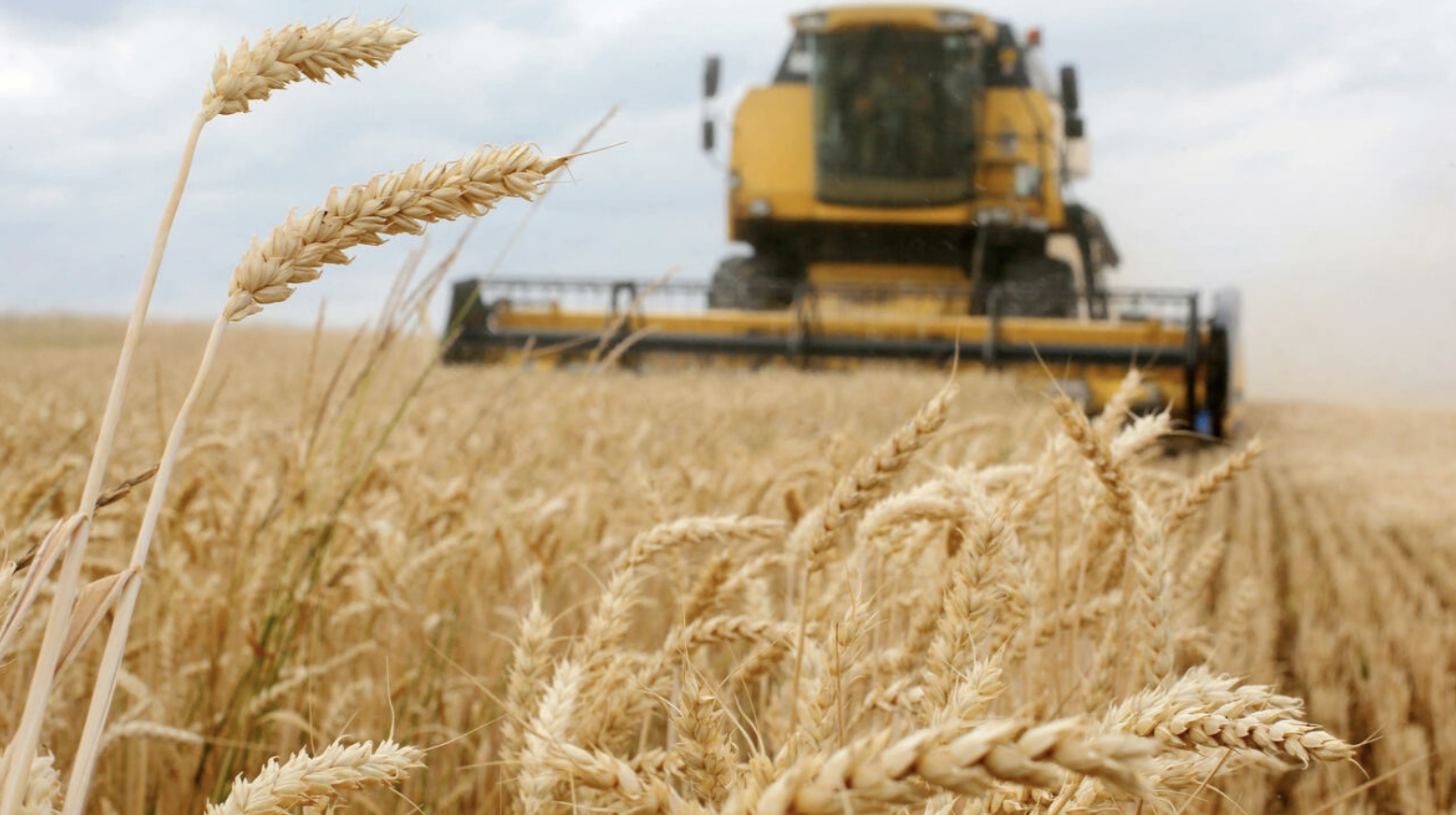
A combine harvester picks up the wheat on a field near the Krasne village, a village in the Odessa Oblast in southwestern Ukraine, in 2019. /AFP
A combine harvester picks up the wheat on a field near the Krasne village, a village in the Odessa Oblast in southwestern Ukraine, in 2019. /AFP
Breadbasket of Europe
Lying mostly in the East European plain, Ukraine consists largely of plains and plateaus with fertile black soil. The country has over one-quarter of the world's black soil, as well as the largest arable land area in Europe with seventy percent of its territory classified as agricultural land.
Known as the "breadbasket of Europe," Ukraine receives plenty of sunshine and rainfall brought by the moderately warm, humid air from the Atlantic Ocean. Besides, it has a long history centered on agriculture.
Oilseed crop like sunflower is an important sub-sector of crop farming in Ukraine. The country is the world's largest exporter of sunflower oil, one of the most widely used oils that can be found in baked, fried, roasted or canned foods. The EU imports half of the sunflower oil Ukraine produces.
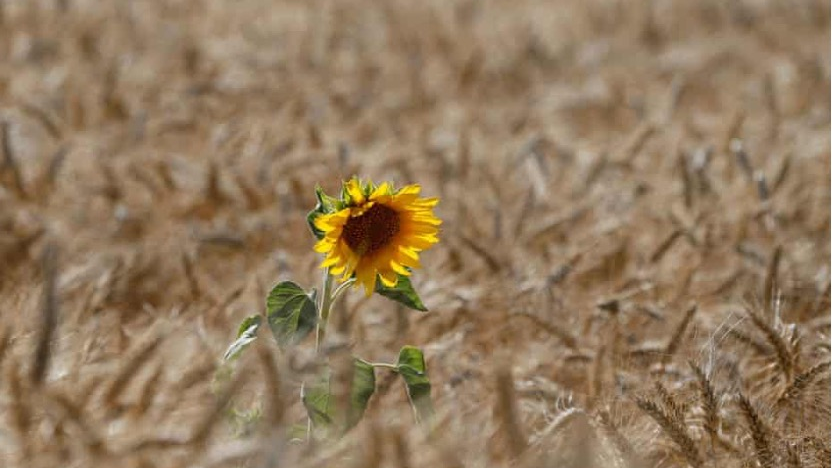
A sunflower in a wheat field near the village of Zhovtneve, Ukraine, July 14, 2016. /Reuters
A sunflower in a wheat field near the village of Zhovtneve, Ukraine, July 14, 2016. /Reuters
The ticking hunger clock
Roughly 40 percent of the export of wheat and corn from Ukraine goes to the Middle East and Africa, according to the UN. Countries that are highly dependent on grain export from Ukraine such as Tunisia, Turkey, Morocco and Egypt have to find other exporters, continually pushing up global grain prices.
Economists say countries that import the most wheat from Ukraine are likely to bear the brunt of the soaring food prices.
"Supply chain and logistical disruptions on Ukrainian and Russian grain and oilseed production and restrictions on Russia's exports will have significant food security repercussions," said Qu Dongyu, Director-General of the UN Food and Agriculture Organization (FAO).
"This is especially true for some fifty countries that depend on Russia and Ukraine for 30 percent or more of their wheat supply. Many of them are least developed countries or low-income, food-deficit countries in Northern Africa, Asia and the Near East."
Maximo Torero, chief economist at the FAO, also expressed his concern during an interview with the Guardian, saying the conflict will lead to significant rise of food prices in poor countries that were already in an extremely weak financial situation owing to COVID-19.
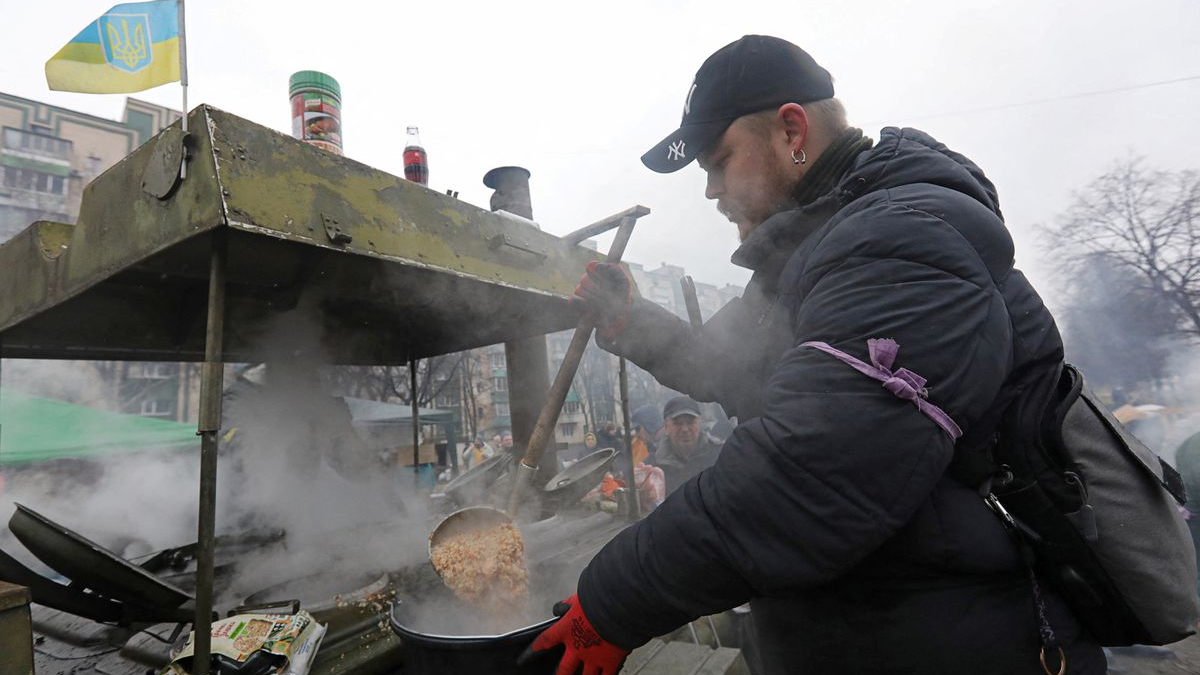
A man prepares food for local residents and members of the Territorial Defence Forces at a field kitchen, Kyiv, Ukraine, March 3, 2022. /Reuters
A man prepares food for local residents and members of the Territorial Defence Forces at a field kitchen, Kyiv, Ukraine, March 3, 2022. /Reuters
While large amount of grain export from Ukraine goes to the Middle East and North Africa, the country produces wheat, barley and rye that much of Europe relies on, as well as over 35 percent of sunflower oil refined in the EU.
"Europe's dependence on Ukraine for food dates back centuries. During the medieval period, it traded frequently with Ancient Greece," said Shi Cheng, a professor from the School of History at Capital Normal University in Beijing. "Most Greek city-states highly relied on grain exports since they were not self-sufficient due to the mountainous landscape.
Geostrategic importance of Ukraine
Ukraine has long been a corridor between Asia and Europe. It lies on the ancient Silk Road, a network of trade routes that began in 130 B.C.E. when the Han dynasty of China opened trade with the West.
Today, Ukraine is part of the Belt and Road Initiative, an international infrastructure program initiated by China in 2013 that stretches from Asia to Europe. The program aims to facilitate regional economic integration and has invested in nearly 70 countries and international organizations through projects related to trade, transportation, energy and digital networks.
Ukraine also participates in the Euro-Asian Transport Links (EATL) project. Implemented by the UN in 2002, the project aims at strengthening the connection of 38 countries between Europe and Asia, including Afghanistan, China, Germany, Greece, the Russian Federation, Turkey, and Ukraine.
Most of the major rivers in Ukraine flow northwest to southeast through plains and empty into the Black Sea and the Sea of Azov. The country has 18 commercial ports along its Black and Azov Seas coastline. Loads of commodities are transported through these warm-water seaports.
However, the current conflict in Eastern Europe has halted the monthly shipment of some 200,000 tons of sunflower seed oil from Ukraine to European ports, according to the European Union. Although inland transportation remains relatively normal, the Ukrainian ports on the Black Sea have shuttered which could raise the transportation costs.
"The current conflict would likely to cause an export loss of grain from both Russia and Ukraine. It is still unclear whether suppliers from other countries would be able to fill this gap," said Diao Li, professor of the Economics and Management School at Wuhan University.
"Wheat inventories are already running low in Canada, exports from the U.S., Argentina and other countries are likely to be limited as government will try to ensure domestic supply."
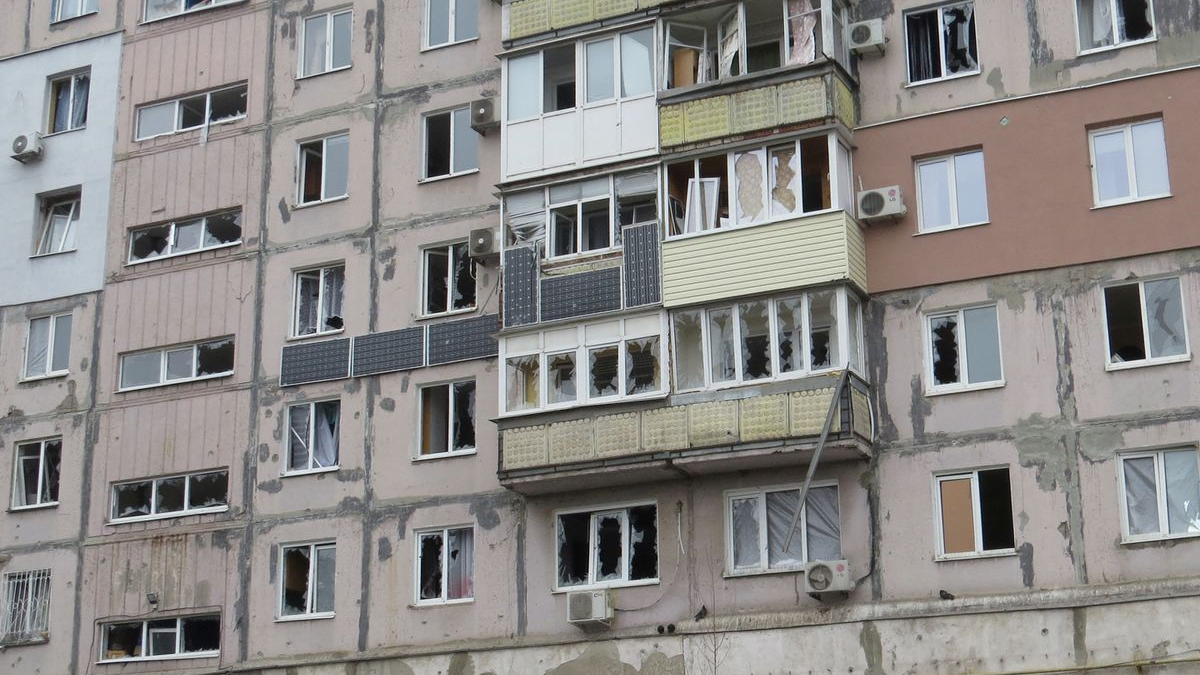
A view shows a residential building, which locals said was damaged by recent shelling, in Mariupol, Ukraine, February 26, 2022. /Reuters
A view shows a residential building, which locals said was damaged by recent shelling, in Mariupol, Ukraine, February 26, 2022. /Reuters
Besides the uncertainty in grain production, the massive population displacement in Ukraine has cut the number of agricultural laborers, causing a reduction of fruit and vegetables, as well as livestock production.
Millions of civilians in Ukraine are now without a place to live and enough food to eat. Olga, a Ukrainian gym instructor in Kharkiv who now living in the shelter in her apartment building, told CGTN that she is always ready to flee while struggling to keep a normal life amid the conflict.
"There are only very few supermarkets are open in Kharkiv, and to buy something you have to stand in line for four hours," said Olga, "The products difficult to find today are cereals, flour and pasta."
Written by Zhong Xia
Video edited by Yang Yiren
Editor: Zeng Ziyi
Supervisor: Zhang Wan

